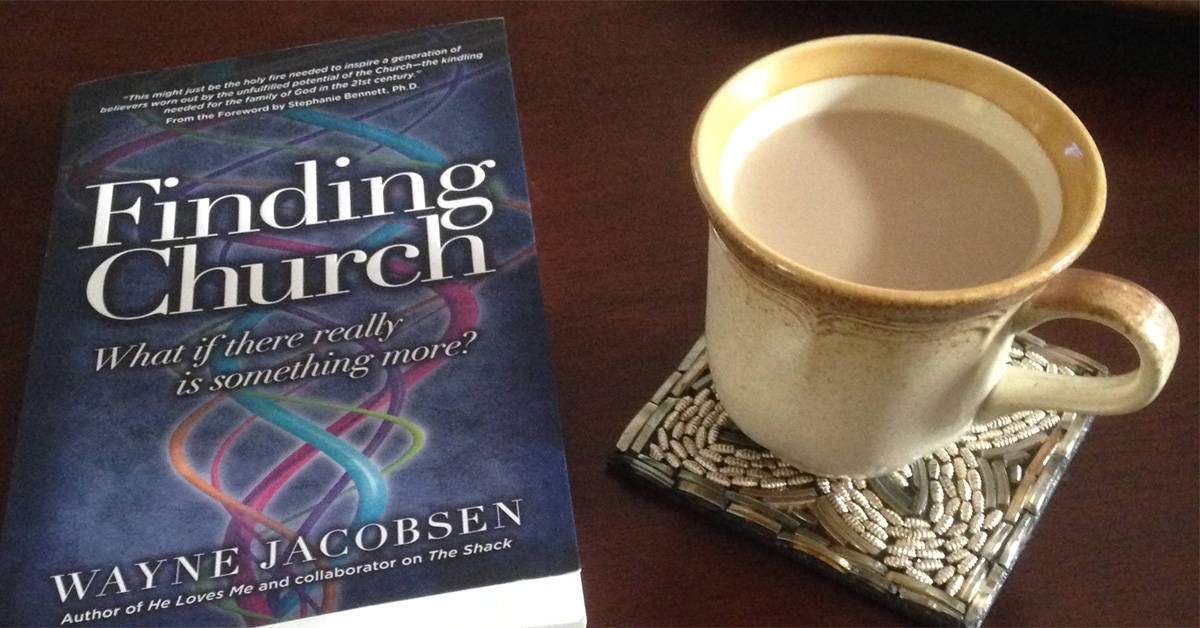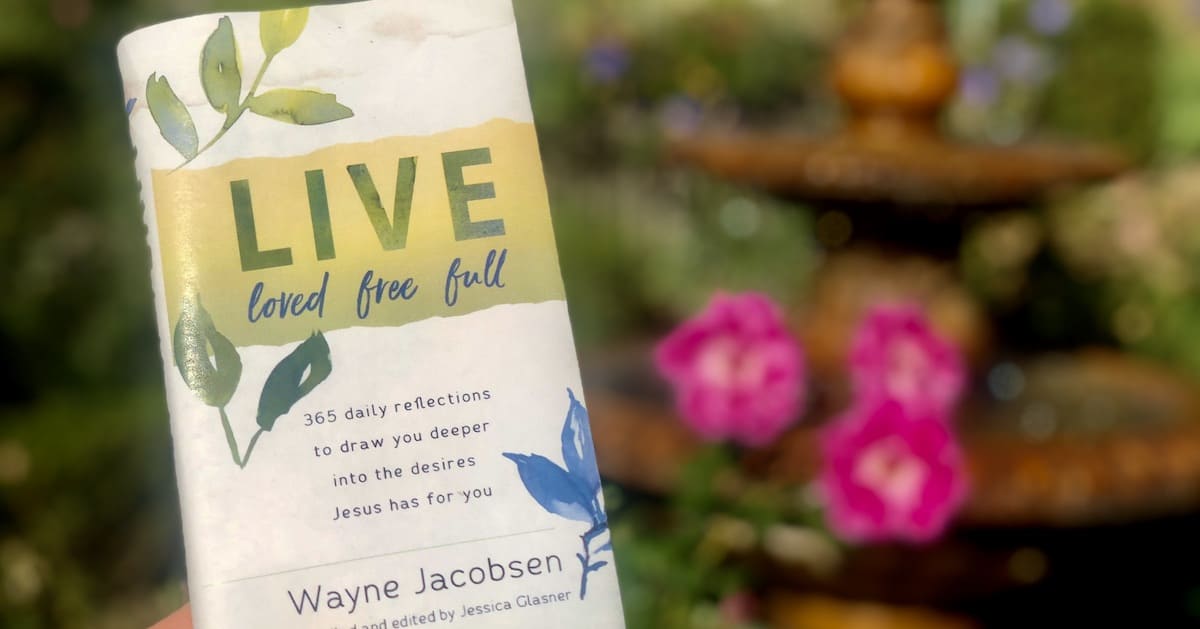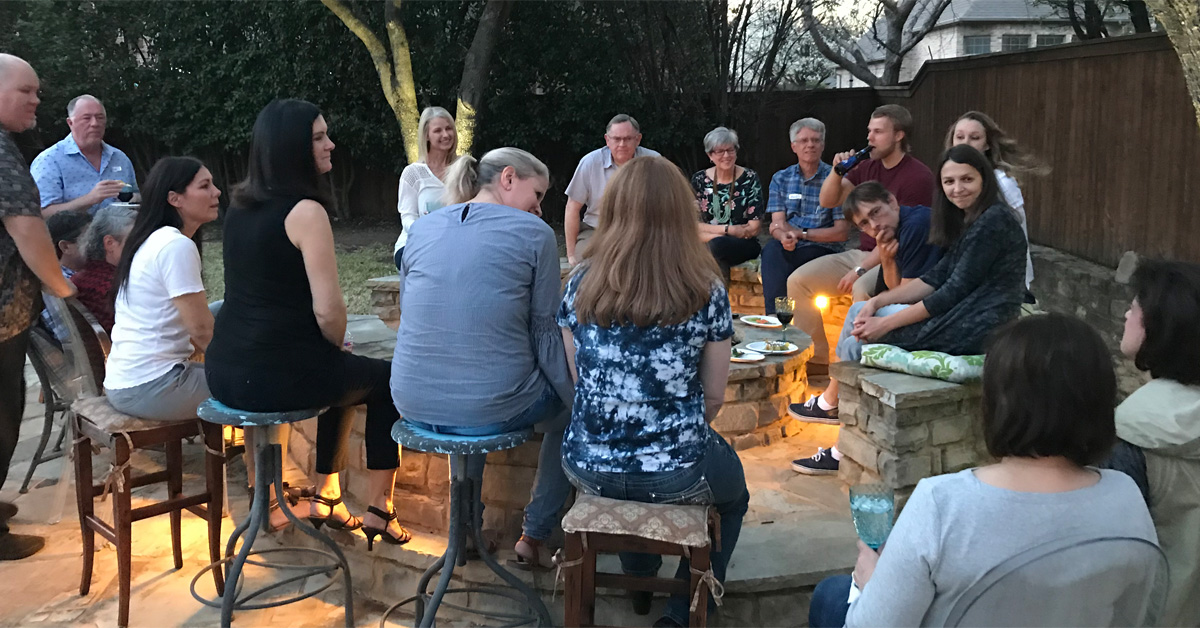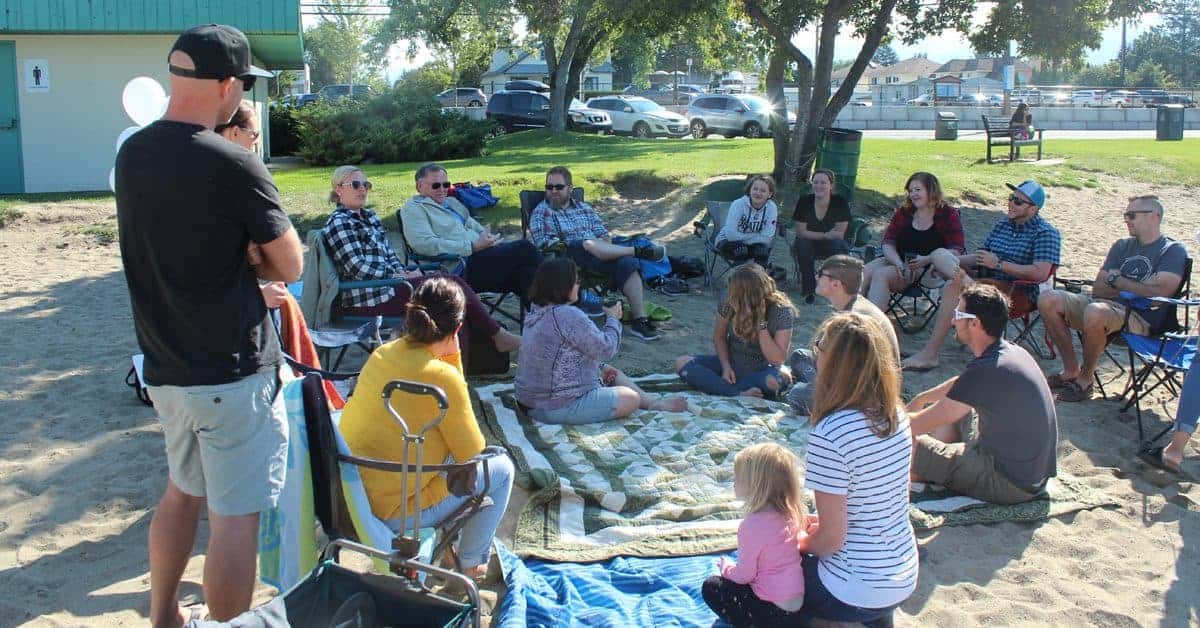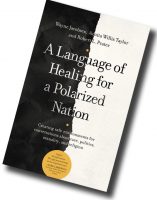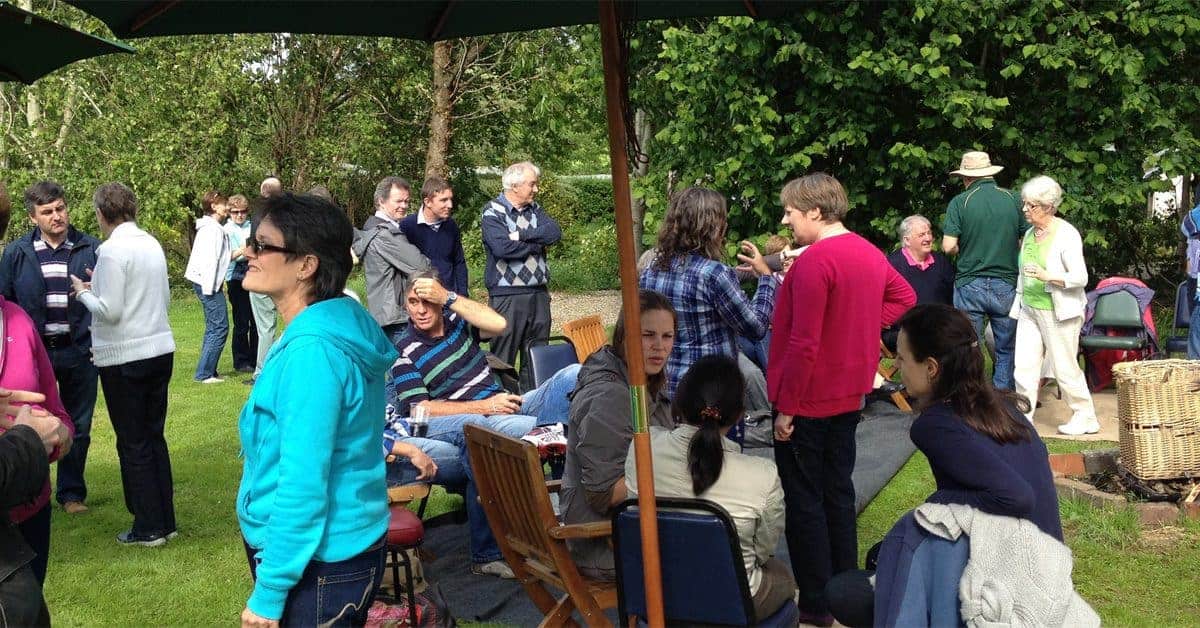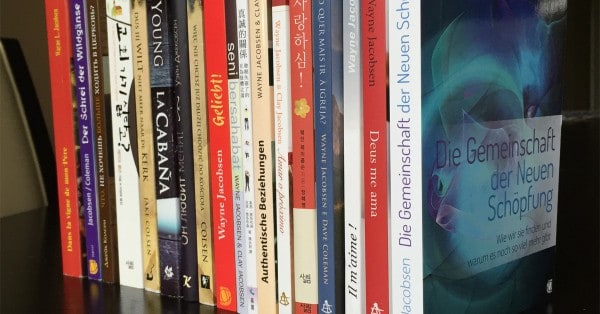By Wayne Jacobsen in a continuing series on The Phenomenon of the Dones.
The question is as ubiquitous as it is silly: “What Church do you go to?”
It’s almost always the first thing Christians ask each other when they meet and it is the most divisive question in all Christendom. We think identifying the particular tribe of Christian someone belongs to will tell us a lot about them. Are they Calvinist, Catholic, charismatic, Bible thumpers, high church or fundamentalist?
The truth is it tells us very little about people. It is an overly simplistic way to profile people with our stereotypical view of any group while it tells us nothing about them as individuals. It doesn’t tell us how deeply they are connected to Jesus, or whether they are thriving on their spiritual journey or withering away in despair. While the question causes some to swell with pride in their movement, others are apprehensive for the judgment their answer might incur.
For the 31 million Christians in America who are following Jesus though they no longer attend a formal congregation, answering that question is a dilemma. If you say you don’t, many will question the sincerity of your faith convinced that all true Christians belong to a local congregation. They make no room for a vibrant faith and an engaging experience of church life without the institutional map.
Recently someone I was just getting to know as they were feeling me out for some potential collaboration asked me that question. When my answer wasn’t satisfactory he asked a second question, “Do you have a community where you live? I knew he was giving me a chance to redeem myself by assuring him I belonged to some kind of Christian group, even if I wasn’t calling it “a church”.
I wasn’t trying to be difficult. We had just met and he was desperate to find some kind of box for me to fit into that would allow him affirm the validity of my faith. He could only do that if I belonged to a group with a name, a regular (hopefully weekly) meeting, and a specified doctrine.
I didn’t want to mislead him, but I tend to use words like this with intentional precision. I don’t have a community; I have three communities that I explore life in Jesus with locally and even more globally. None of them is an organized group with names and leadership structures. Some think that means they doesn’t count, but they would be wrong. I see community very differently than he did and I knew we weren’t going to get through this on his terminology alone.
“Why don’t you ask me if I have community where I live?” I offered.
That stopped him. He looked quizzically for a second and then asked what I meant. Now we were having the conversation I hoped to have. Yes, I have community, more of it than I had ever experienced in an organized group. None of these have coalesced into a named group or regular routine, but the relationships intersect frequently and among those I am deeply known, have people to love and serve, and am regularly challenged to an ever-deepening engagement with Jesus.
He got the point. People can belong to “a community” without having community. The biggest complaint I hear from people who attend a congregation is that few relationships seem to get beneath the surface of people’s lives. Our culture uses the term ‘community’ for any social group that shares a common interest or structure. When I think of community, however, I don’t think of regular meetings, standardized conduct, or a superintending leadership structure. I think of deep friendships where people are known without pretense and where they share mutual love, encouragement, and service as a normal part of their everyday lives.
It is the innate hunger for these kinds of friendships that is causing people to look beyond our large, tired institutions. Instead of incubating close, personal caring relationships, many foster a conformity-based culture where meeting a set of religious expectations subverts the genuineness out of which community grows. The political realities of running an institution and people going along with those subvert the hope of real community. When you’re pretending to be what you’re not to be loved and accepted, real relationship cannot happen. People don’t know you, they only know who you pretend to be.
Community can’t be manufactured by human programming; it is the fruit of people living authentically and lovingly with an expanding pool of growing friendships that defy age, interests, ethnicity, and societal status. Community is the fruit of people connecting with others beneath the masks we often wear to negotiate society. It’s real concern, real affection, and real honesty inside a growing relationship with Jesus.
You can’t have community with everyone sitting in a large auditorium, nor by working together on the “church program”. It may happen in those settings, but not because of those things; it’s because people connect in growing friendships beyond them—before and after the meetings, in conversations, meals and activities where people can relax and be themselves.
That’s why I prefer the question, “Do you have community?” Are there people around you who know the real you—your hopes and dreams, doubts and fears? Are they willing to struggle with you as you learn to follow Jesus and be open with their own lives as well? Can you freely ask questions, and struggle with the questions of life and faith? Are they people you are delighted to see when they come around?
These are all reflections of real community and few people have such friendships. Most of our human interactions, especially in our shame and desire to control others, undermine that reality. Religious environments often trigger those responses rather than letting people relax into a relationship that’s real they try to force one through pretense.
So how do you find community? This is as true for people who go to an organized gathering as those who do not. Real community has to be found at its source—inside the Trinity itself. Father, Son and Spirit share the most breathtaking dance of community in the universe. Their love for each other is rich and full and because of that they are able to share life, glory, trust, and truth in such an awesome way it is difficult for us to conceive of it in the brokenness of the creation. But we are invited to participate in it. Jesus said that his disciples would come to know that “On that day you will realize that I am in my Father, and you are in me, and I am in you.” (John 14:20)
Jesus invited us into the relationship the Trinity shares together. As we grow in our awareness of them and learn to love and trust them the same way they trust each other we will begin to experience the wonder of their community. That happens as we learn to rest in their love and watch as they make themselves known in to us. Jesus showed us how that happened as he walked along the road with his disciples or relaxed in Mary and Martha’s home in Bethany.
And as we get increasingly comfortable inside the Divine community we will find ourselves quite naturally sharing it with others. The shame that sabotages our relationships and drives us to pretense and performance will begin to fade away and we’ll find that we are more compassionate for people and freer to care about them. That’s where you find community, not by looking to be loved, but by beginning to love others.
The love we desire from others is the love we first give away even without any expectation of return. God wants his love to envelop people even if they never respond to it. But when they do and are able to reach back in loving ways toward you a friendship is born and it is out of friendship that community begins. And, no, this doesn’t happen quickly. It takes time to get to know people, hear their story and sense that connection that can become a friendship and then the proximity to let that relationship grow. We are too quick to form groups and try to trust each other when many are still so broken that they have no idea how to love. The results can be devastating as people feel used or as competition or gossip take hold.
Some are so broken that they will pretend to love you, as long as they benefit from you. When they no longer do, they will cut you off or even worse betray you to gain a foothold with others. It happened to Jesus too, so we dare not think ourselves immune from it. But don’t let that keep you from exploring the relationships love can build. Just keep on loving the way you are loved by him. In time you’ll find yourself alongside others who also know how to love beyond their own self-interest. Don’t let hurt draw you back into yourself. Evil has a way of fragmenting relationships but his love allows us to overcome the immaturity of others and keep loving them if possible, or move on from them if not.
Our engagement with others need no go any deeper than how safe we are exploring life with them. We are won into friendships; they cannot be imposed on us. And even healthy community will have its ups and downs. We live in a fallen world and our expressions of community will be flawed as well. Don’t expect others to always get it right and don’t put that demand on yourself. There’s a lot of forgiveness and forbearance in any friendship that thrives over time. In real community loving each other is more important than being right or trying to fix others to meet our expectations.
Community is about friendships and it enhances all of life, where we live, work and play. Not all our friends have to be followers of Christ yet. By caring about others and letting them care about you, you provide the fertile ground where sharing the kingdom takes place. If you are graceful with them many will come to know the God you know and then the friendships only deepen.
Community rises out of the friendships God gives you and as you are generous with those friendships a living network of friends and friends of friends will emerge around you. Some may be local, others from further away. The best gift I can give my friends, is to introduce them to others of my friends. That growing network of interconnected friends will overlap with other expressions as a tapestry of God’s church makes herself known in the world.
Having community is a way to live. We have to make time for friendships, space for new people, and learn to love people simply as they are, not how we would like them to be. We are not alone here. It is Jesus job to build the church and the Spirit’s task to show us our place in it. This relational way of engaging his church is a challenge to be sure, but the fruits of doing so are to experience an ever-growing network of friendships that bring wisdom, healing, comfort, and joy to your life in Jesus.
__________________
This is part 13 in a series on The Phenomenon of the Dones by Wayne Jacobsen who is the author of Finding Church and host of a podcast at TheGodJourney.com. You can read the first half here and subsequent parts below:
If you’d like to subscribe to this blog and receive future posts by email you can sign up at the top of the right-hand column of our home page.
 Continuing with our weekly theme of Q and A, here’s another bit of dialogue with a brother concerned about relationships:
Continuing with our weekly theme of Q and A, here’s another bit of dialogue with a brother concerned about relationships:



 I got the following email last week about church discipline and thought that others might be interested in this topic as well. This is a blog, remember, so I’m not giving a definitive, this-will-fit-every-situation kind of answer. Rather, I’ll share some thoughts that may help you think through these kinds of situations when they arise.
I got the following email last week about church discipline and thought that others might be interested in this topic as well. This is a blog, remember, so I’m not giving a definitive, this-will-fit-every-situation kind of answer. Rather, I’ll share some thoughts that may help you think through these kinds of situations when they arise.